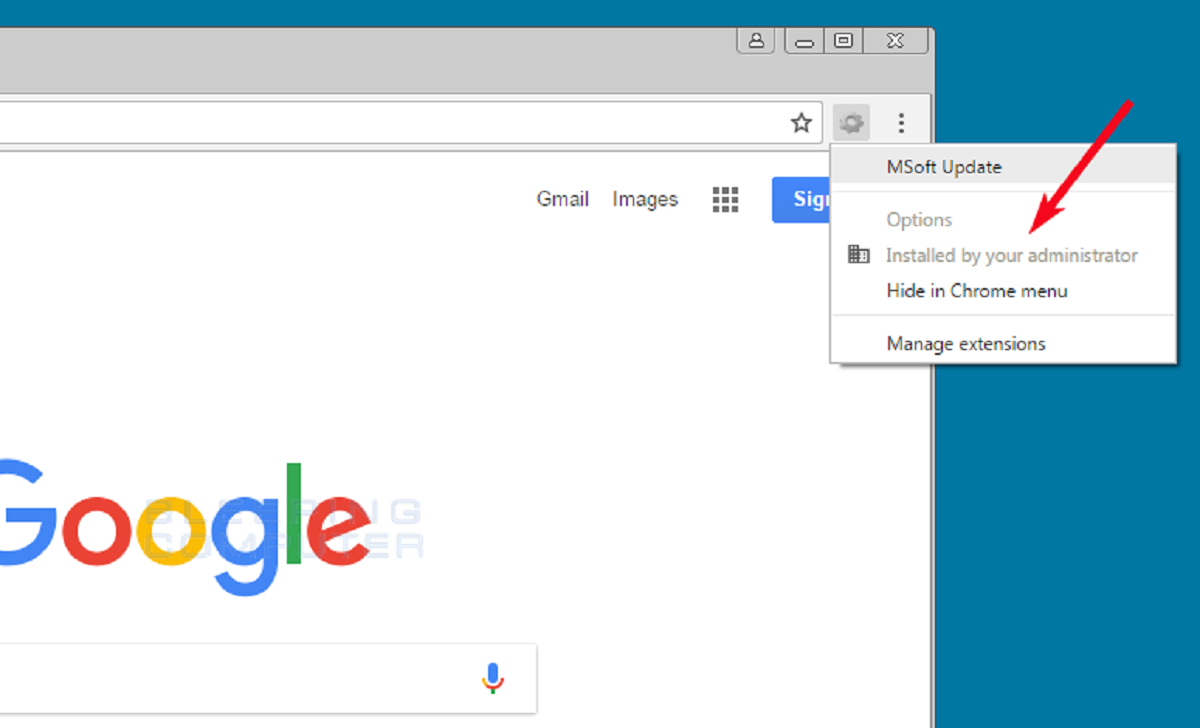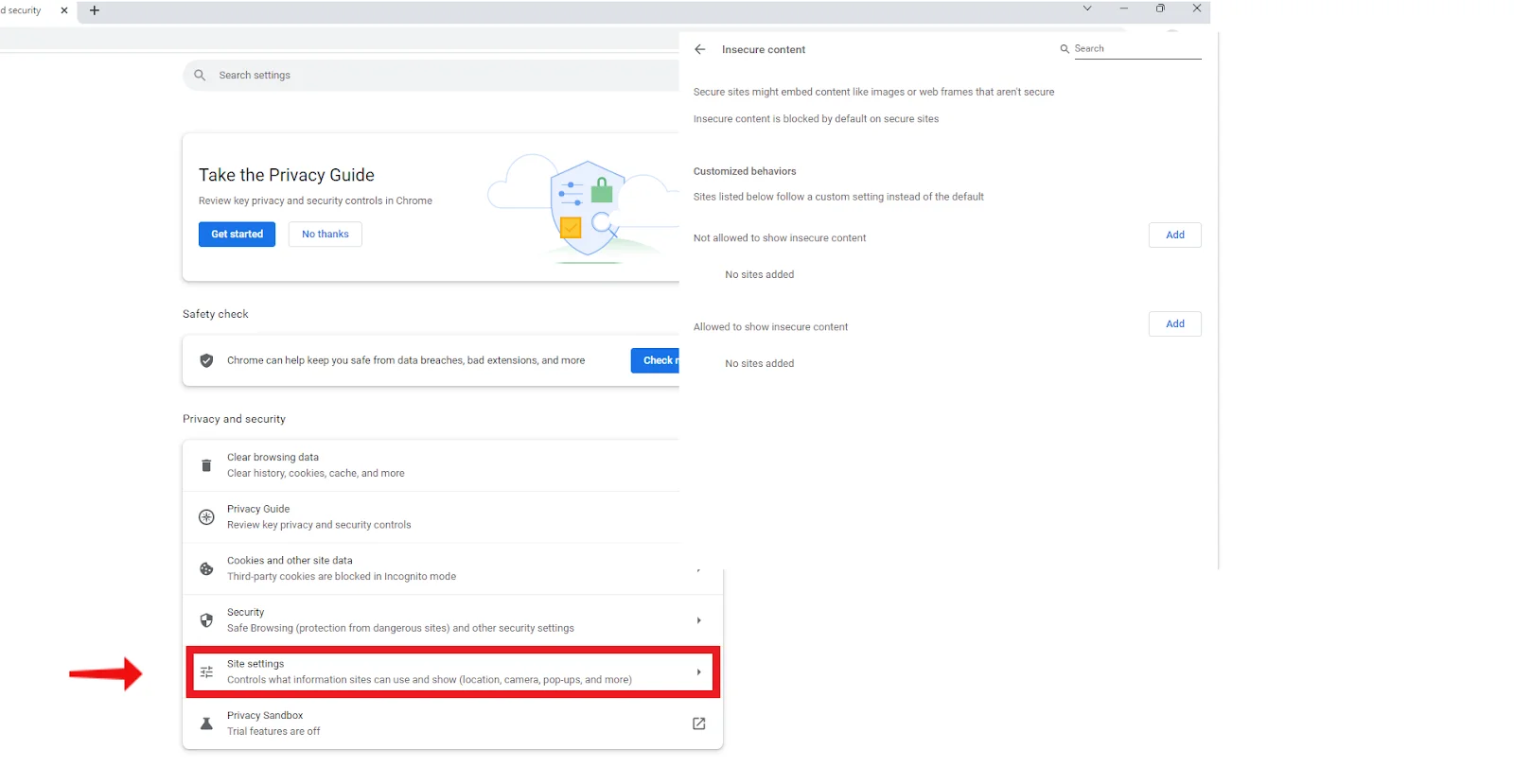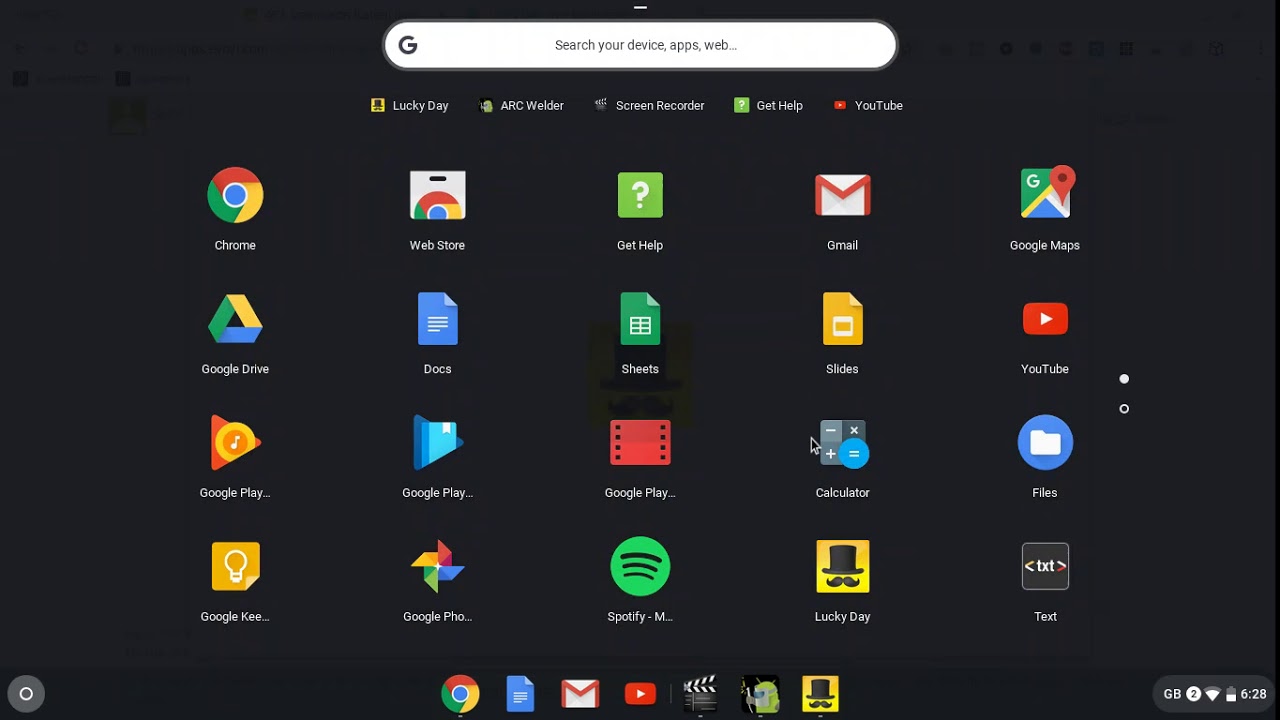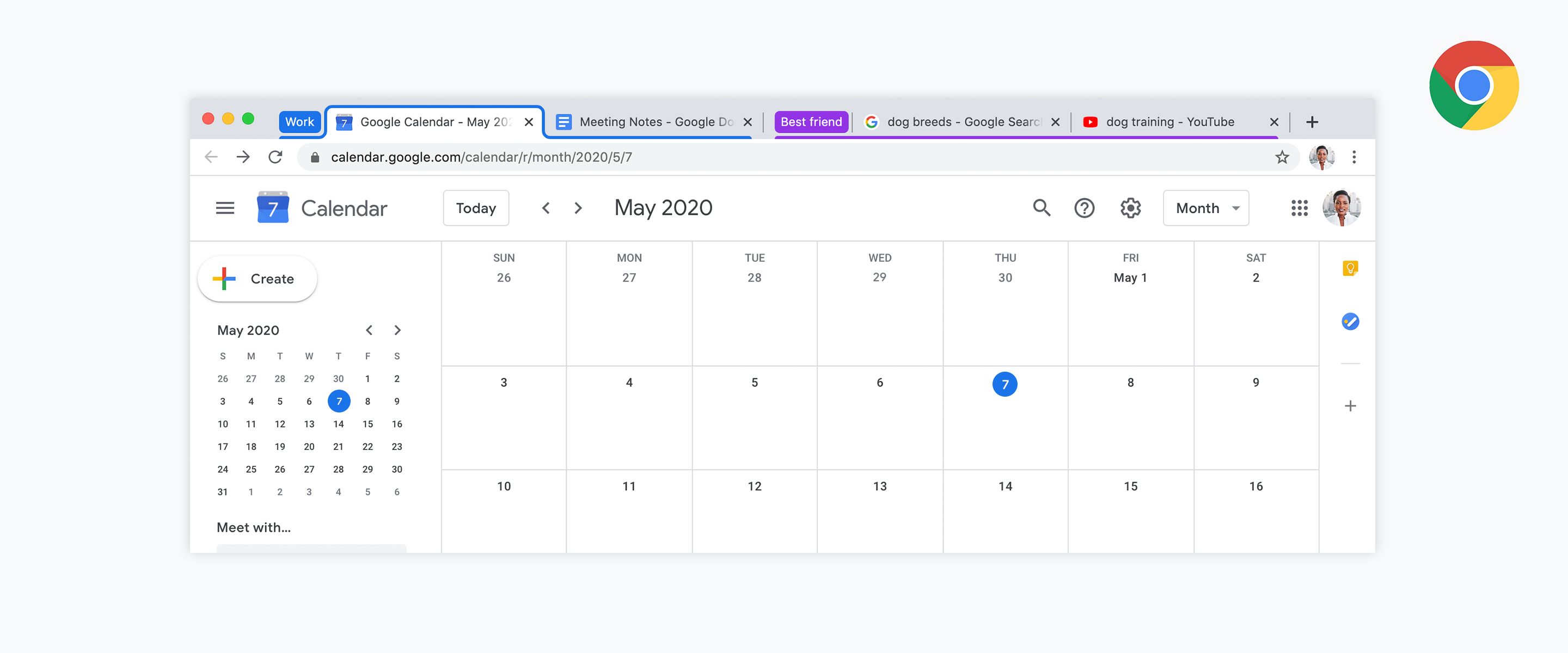Introduction
Chrome extensions have become an integral part of the digital landscape, offering users an array of convenient functionalities and enhancements. For students, these extensions are incredibly useful, providing valuable tools to streamline their academic journey and enhance productivity.
Whether it’s a built-in dictionary for quick word definitions, a citation generator for proper referencing, or a time management tool to keep track of assignments, Chrome extensions offer a vast array of possibilities. With just a few clicks, students can leverage these extensions to make their online experience more efficient and effective.
In this article, we will explore the various avenues where students can find Chrome extensions to cater to their academic needs. From the official Chrome Web Store to specialized extension catalogues, educational websites and blogs, social media platforms, and recommendations from teachers and classmates, students have plentiful options to discover and integrate valuable extensions into their browser.
Whether you’re a high school student looking for assistance with essay writing or a college student seeking tools to improve online collaboration, the following sections will guide you on where to find these invaluable resources. So, let’s dive in and explore the world of Chrome extensions that can elevate your academic experience!
Why are Chrome extensions useful for students?
Chrome extensions offer a plethora of benefits and conveniences that can greatly enhance the academic experience for students. Here are several reasons why Chrome extensions are useful:
- Efficiency and productivity: Chrome extensions can help students save time and work more efficiently. Whether it’s by automating repetitive tasks, providing quick access to essential tools, or organizing online resources, these extensions can streamline workflow and boost productivity.
- Academic support: Many Chrome extensions are specifically designed to support students academically. From grammar and spelling checkers to plagiarism detectors, these extensions can help students improve their writing skills and produce high-quality work.
- Research assistance: Researching and gathering information is a crucial part of the student experience. Chrome extensions like citation generators, reference managers, and research assistants can simplify the process, ensuring accurate citations and efficient organization of sources.
- Study aids: Chrome extensions can provide students with valuable study aids and tools to enhance learning. Flashcard creators, note-taking assistants, and timetable organizers are just a few examples of extensions that can help students stay organized and succeed academically.
- Accessibility features: Chrome extensions can make the online environment more accessible for students with disabilities. Extensions that offer screen reading, text-to-speech, or color contrast adjustments can level the playing field and provide equal access to information.
- Creative expression: Some Chrome extensions cater to students’ creative pursuits, allowing them to explore their artistic abilities or create visually engaging presentations. Extensions with graphic design tools, image editors, or presentation enhancers can unleash students’ creativity and make their work visually appealing.
These are just a few examples of how Chrome extensions can benefit students academically. With the right extensions in place, students can enhance their productivity, improve their research skills, and have access to valuable tools that support their academic success.
Where can students find Chrome extensions?
Students looking for Chrome extensions have various options to explore and discover the perfect tools to support their academic needs. Here are five avenues where students can find valuable Chrome extensions:
- Chrome Web Store: The official Chrome Web Store is the primary and most reliable source for finding Chrome extensions. Students can simply visit the store’s website and browse through a wide range of extensions specifically categorized under education, productivity, research, and more. The Chrome Web Store provides detailed descriptions, user reviews, and ratings, allowing students to make informed choices.
- Chrome Extension catalogues: Numerous third-party websites curate and showcase collections of Chrome extensions. These catalogues are dedicated to providing a comprehensive list of extensions covering various categories, including education. Examples of popular extension catalogues include “Chrome Extension Gallery” and “ChromeExtensions.org.” Students can visit these websites and explore curated lists of extensions that cater specifically to their academic needs.
- Educational websites and blogs: Many educational websites and blogs offer recommended lists of Chrome extensions for students. These websites are built to support the academic journey and provide valuable resources and tools. Students can visit these websites or subscribe to their blogs to stay updated on the latest and most beneficial Chrome extensions available.
- Social media and online forums: Social media platforms and online forums can be treasure troves of valuable information when it comes to finding Chrome extensions. Joining relevant student communities, educational groups, or forums can expose students to discussions and recommendations regarding useful extensions. Students can actively participate in these communities, seek advice from peers, and discover extensions that have been tried and recommended by others.
- Recommendations from teachers and classmates: Teachers and classmates can be excellent sources of recommendations for Chrome extensions. Students can reach out to their teachers and inquire about any recommended extensions for specific subjects or tasks. Additionally, discussing extensions with classmates can lead to the discovery of new and beneficial tools that others have found helpful in their academic journey.
By exploring these avenues, students can find a wide selection of Chrome extensions that suit their individual needs and enhance their academic experience. Whether through official channels like the Chrome Web Store or by seeking recommendations from trusted sources, students have plenty of resources to discover the perfect extensions for their studies.
Chrome Web Store
The Chrome Web Store is the official and most prominent platform for discovering Chrome extensions. It offers a vast collection of extensions, including those designed specifically for students and education. Here’s how students can find valuable extensions on the Chrome Web Store:
1. Start by visiting the Chrome Web Store website. You can access it by typing “chrome://extensions/” in the address bar of your Chrome browser or by clicking on the “Extensions” menu in the Chrome settings.
2. Once you’re on the Chrome Web Store homepage, you can navigate to the “Extensions” section on the left-hand side menu. Click on it, and you’ll be presented with various categories and options to explore.
3. Look for the “Education” category, or search for keywords related to your specific academic needs. The Education category provides a curated selection of extensions tailored to support students and their educational journey.
4. Browse through the available extensions and read the descriptions, ratings, and user reviews. This information will give you insights into the functionality and effectiveness of each extension.
5. To install an extension, simply click on the “Add to Chrome” button next to the extension’s description. Chrome will download and install the extension automatically.
6. Once installed, you can manage your extensions by clicking on the puzzle icon in the top-right corner of your browser. From there, you can access the Extensions menu, where you can enable, disable, or remove installed extensions if needed.
It’s important to note that while the Chrome Web Store is an excellent source for extensions, it’s always recommended to review the ratings and comments given by other users to ensure the quality and reliability of the extensions you choose.
By exploring the Chrome Web Store’s education category and searching for relevant keywords, students can discover a wide range of extensions that cater to their specific academic needs. Whether it’s enhancing productivity, improving research skills, or streamlining the writing process, the Chrome Web Store is a valuable resource for finding Chrome extensions that will support and enhance your studies.
Chrome Extension catalogues
Aside from the official Chrome Web Store, there are several third-party websites and catalogues dedicated to curating and showcasing Chrome extensions. These catalogues offer students an alternative way to discover and explore a wide range of extensions. Here’s how students can find valuable Chrome extensions through these catalogues:
1. Start by searching for popular Chrome extension catalogues. Websites like “Chrome Extension Gallery” and “ChromeExtensions.org” are well-known catalogues that provide extensive collections of Chrome extensions.
2. Visit the website of the chosen Chrome extension catalogue. Many catalogues categorize their extensions under various niches, making it easier for students to find education-focused extensions.
3. Browse through the available extension categories or use the search function to find extensions relevant to your academic needs. These catalogues often provide detailed descriptions, screenshots, and user ratings for each extension, helping you make informed decisions.
4. Read the reviews and ratings given by other users. Feedback from users who have already tried the extensions can give you valuable insights into their performance, reliability, and usefulness.
5. Once you’ve found an extension you’d like to install, click on the provided link or button to be redirected to the Chrome Web Store page for that extension. From there, you can follow the installation process as you would from the Chrome Web Store directly.
While using Chrome extension catalogues offers additional options for finding extensions, it’s important to exercise caution and verify the reliability of the catalogues you choose to use. Stick to well-established and trusted catalogues to ensure the quality and security of the extensions you install.
Exploring Chrome extension catalogues can provide students with more choices and unique extensions that may not be readily available on the Chrome Web Store. These catalogues cater to a wide range of categories, including education, and can be a valuable resource for finding Chrome extensions that suit your academic needs.
Educational websites and blogs
Educational websites and blogs are excellent sources for finding recommended Chrome extensions tailored to support students in their academic endeavors. These websites offer valuable resources, including curated lists of extensions and in-depth reviews. Here’s how students can utilize educational websites and blogs to discover useful Chrome extensions:
1. Begin by identifying reputable educational websites and blogs that provide information and resources for students. Look for websites that focus on education, technology, or student life.
2. Explore the website’s dedicated section or category for Chrome extensions or educational tools. Many educational websites and blogs curate lists of recommended extensions specifically for students.
3. Read the articles and blog posts that feature Chrome extensions. These posts often provide detailed descriptions, use cases, and explanations of how the extensions can benefit students in their studies.
4. Take note of the recommendations provided by educators and experts within the educational community. Their insights and experiences can help guide you towards extensions that are widely recognized and trusted.
5. Follow the links provided in the articles to directly access the Chrome Web Store pages of the recommended extensions. From there, you can go through the installation process as you would with any other extension.
6. Consider subscribing to the newsletters or RSS feeds of these educational websites and blogs. By doing so, you can stay updated on the latest extension recommendations and other valuable resources.
Educational websites and blogs are invaluable resources for students seeking to discover Chrome extensions that have been vetted and recommended by trusted sources. These platforms cater specifically to the academic community, ensuring that the extensions featured are relevant, effective, and beneficial for students’ studies.
By utilizing educational websites and blogs, students can tap into a rich source of knowledge and recommendations for Chrome extensions that can enhance their academic journey.
Social media and online forums
Social media platforms and online forums can be valuable sources for discovering Chrome extensions through discussions, recommendations, and shared experiences. These platforms create opportunities for students to engage with their peers and learn about useful extensions for their academic needs. Here’s how students can utilize social media and online forums to find helpful Chrome extensions:
1. Join relevant social media groups or communities dedicated to students, education, or technology. Platforms like Facebook, Reddit, and LinkedIn often have groups where students discuss and share resources.
2. Participate actively in these groups by asking questions about Chrome extensions or requesting recommendations. Be specific about your requirements and mention the specific tasks or subjects you need help with.
3. Take note of the extensions that other students recommend or mention in their discussions. Pay attention to the reasons why they find these extensions useful and how they have benefited from using them.
4. Explore relevant hashtags on social media platforms like Twitter and Instagram. By searching for hashtags like #ChromeExtensions or #StudentTools, you can discover posts and recommendations related to useful Chrome extensions.
5. Visit online forums and discussion boards dedicated to student life or education. Websites like Quora and Stack Exchange host forums where students and educators discuss various topics, including Chrome extensions.
6. Engage in conversations within these forums by asking questions or seeking recommendations for specific extensions. Take advantage of the knowledge and expertise of the community members who have experienced using different extensions.
Remember to exercise critical thinking and evaluate the recommendations and opinions shared on social media and forums. While these platforms can provide valuable insights, it’s important to verify the credibility and reliability of the information before installing any extensions.
Social media platforms and online forums offer students the opportunity to tap into the collective knowledge and experiences of their peers. By actively participating in discussions and seeking recommendations, students can discover Chrome extensions that have been tried and tested by others, ultimately enhancing their academic performance and efficiency.
Recommendations from teachers and classmates
One of the most valuable resources for finding helpful Chrome extensions is the recommendations from teachers and classmates. These individuals possess firsthand experience with extensions that have proven effective in supporting learning and academic success. Here’s how students can seek and utilize recommendations from their teachers and classmates:
1. Approach your teachers and ask if they have any recommendations for Chrome extensions. Teachers often have insights into extensions that align with specific subjects or tasks. Express your specific needs and inquire about extensions that can assist you in areas like research, writing, or organization.
2. Consider reaching out to classmates who have shown proficiency in using technology or have mentioned using helpful extensions. Collaborating with classmates to exchange ideas and suggestions can provide a wealth of information and personal experiences.
3. Create a dedicated online group or forum with your classmates to share extensions you have found useful and discuss their effectiveness. Take advantage of each other’s expertise and collaborate in finding the most beneficial extensions for everyone’s academic needs.
4. Engage in classroom discussions focused on technology or learning tools. Through these discussions, teachers may share recommendations for Chrome extensions that have helped previous students or have been proven to enhance the learning experience.
5. Attend workshops or webinars offered by your school or educational institutions that discuss useful educational technology tools, including Chrome extensions. These sessions often include presentations from experts who can provide valuable insights and recommendations.
Remember to evaluate the recommendations you receive, considering factors such as reliability, popularity, and user reviews. What works for one person may not necessarily work for another, so it’s important to find extensions that align with your individual learning style and academic goals.
By seeking recommendations from teachers and classmates, students can tap into a network of individuals who have already explored and tested various Chrome extensions. These personal experiences can guide students towards finding extensions that are effective, reliable, and tailored to their specific academic requirements.
Conclusion
Chrome extensions offer a wealth of opportunities for students to enhance their academic journey and maximize their productivity. With the ability to automate tasks, provide academic support, assist in research, and improve study habits, these extensions have become indispensable tools for students.
Throughout this article, we have explored various avenues where students can find valuable Chrome extensions. From the official Chrome Web Store, where students can browse through a wide range of extensions, to third-party catalogues that curate and showcase extensions, there are numerous options available.
Educational websites and blogs provide curated lists and reviews of helpful extensions, while social media platforms and online forums offer opportunities to engage with peers and gain insights from their experiences. Additionally, seeking recommendations from teachers and classmates can prove invaluable in discovering extensions that have been tried and tested by those in the academic community.
When exploring these avenues, it’s crucial to exercise critical thinking and evaluate the credibility of the extensions and recommendations encountered. Reading user reviews, considering ratings, and verifying the reliability of the sources can help ensure the quality and effectiveness of the extensions you choose to install.
In conclusion, by leveraging Chrome extensions, students can optimize their online experience, improve productivity, and streamline their academic journey. Whether it’s managing time, organizing research, enhancing writing skills, or boosting accessibility, the right extensions can make a significant difference in student success. By utilizing the various channels highlighted in this article, students can discover an array of valuable Chrome extensions that cater to their unique academic needs and empower them on their educational path.

























